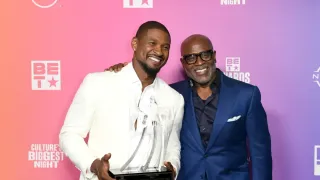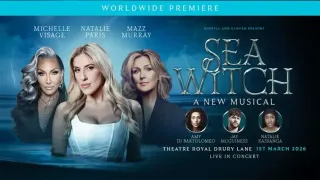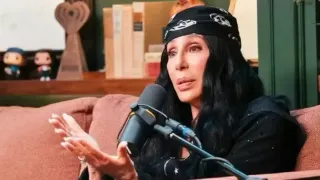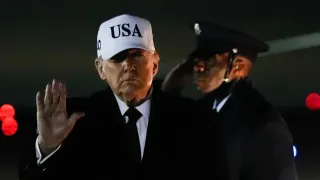October 18, 2017
@ the New York Film Fest: Nudity Controversy and Female Actors Rule
Frank J. Avella READ TIME: 6 MIN.
Now that I've managed to see 20 of the 24 main slate offerings New York Film Festival, exhaustion has set in. And there is also both a feeling of elation and frustration.
The latter mostly stems from the valid controversy surrounding "Call Me By Your Name," which has created a vital conversation among journos and cinema lovers about sexual content and nudity in gay-themed films, especially when contrasted with "BPM (Beats Per Minute)."
For those unaware of the debate, there are many who feel Luca Guadagnino's "Call Me By Your Name" compromises the intentions of the screenwriter, James Ivory and the original novelist (Andr� Aciman), via a sanitized treatment.
"Call Me By Your Name"
There have been conflicting accounts as to why sex scenes and nudity were not included in the film. With due respect to the filmmaker, Guadagnino has given varied explanations as to the reasons from stating it was a "personal choice" to needing to "meet the standards of the market."
In an interview I did with Ivory in May he lamented that, "both actors (Armie Hammer & Timoth�e Chalamet) had it in their contracts that they were not to be photographed in the nude. Now, that never happened back in those days ('Maurice' in 1987). At least, in England that never happened."
There was certainly plenty of male nudity on display in Guadagnino's last film (for Fox Searchlight), "A Bigger Splash," and at a recent NYFF press conference the director seemed a bit irked by the limitation. Still, where these "demands" actually came from remains a mystery.
Did the actors refused to film intimate love scenes? We know they refused frontal nudity and the film only shows very quick backside moments of both (as if a box we being checked off). Why not cast different actors, then?
When asked about why he didn't cast out gay actors, Guadagnino said he had no "gender agenda" and chose the actors he felt most enthusiastic about.
Was it Sony Pictures Classics insisting on no sex scenes or nudity?
Perhaps Guadagnino's true feelings on the subject can be found in the film itself when, as the two lovers are in the midst of a passionate moment, the camera pans to a window in the manner that was done in old Hollywood. Could this be his clever protest against having his hands tied?
"BPM"
The antithesis of this faux prude silliness can be found in Robin Campillo's stunning and potent "BPM," where nudity and explicit, intimate sex scenes are quite prominent and both lead (French) actors did not have any qualms about doing them.
And before anyone can shout about these scenes being gratuitous, they're actually cross cut with scenes from the characters' past, involving their sexual history, revealing character nuance, and moving the story along. Campillo is aware of the importance of honesty when it comes to telling his story.
None of this makes "Call Me By Your Name" any less of an affecting and truly moving film. But one wonders how much greater it could have been.
As a strange aside, there was a minor controversy surrounding James Woods' tweeting his distaste for the film via Twitter and Hammer's perfect response. I call it minor because the homophobic Woods is a minor actor, mostly remembered for being stalked by Sean Young back in the late 1980s, if he's remembered at all.
Now getting back to the films...
"Lady Bird"
Among the best I saw this last week is Greta Gerwig's directorial debut, "Lady Bird," starring a gloriously good Saoirse Ronan as a high school senior looking for acceptance and validation from her fellow students and her family, especially her judgmental mother (Laurie Metcalf).
One of the things Gerwig (who also wrote the semi-autobiographical screenplay) gets so right (and which I have rarely seen onscreen) is just how teens, as well as adults, can move from one extreme of emotion to another, sometimes mid-second, based on a look, a sentence, a miscommunication or a clarification.
"Lady Bird" features a closeted gay character (I will not give away who it is). Suffice to say that Gerwig shows such care for her creations she doesn't discard this featured character, nor does Lady Bird herself, when said character is no longer needed. Instead, we get a scene of great love and tenderness; it defines the film as well as the artist. I cannot wait to see what Gerwig does next.
"The Meyerowitz Stories (New and Selected)"
Gerwig's sometime partner in film and partner in life, Noah Baumbach, has made another fabulously idiosyncratic dramedy, "The Meyerowitz Stories (New and Selected)."
Making a movie where I actually appreciate Adam Sandler as an actor takes a directorial genius. Paul Thomas Anderson did it with "Punch-Drunk Love," way back in 2002. But here I can honestly say Sandler is revelatory as a man who has spent his life as an almost invisible presence in the lives of his father and brother.
Baumbach is a brilliant satirist, specifically when it comes to upper-middle class Manhattan liberals, and here we have another film that delves into the difficult relationships between parents and children (much like "Lady Bird") -- but there is much more seething resentment and anger here.
"Meyerowitz" features one of the best acting ensembles of the year. Elizabeth Marvel, Dustin Hoffman, a dizzyingly daffy Emma Thompson, Grace Van Patten and a way too underused Candice Bergen are all sublime.
Ben Stiller, another actor I have never warmed to, does a decent enough job in the arguable lead role, but this is Sandler's showcase.
"Let the Sunshine In" ("Un Beau Soleil Interieur")
Speaking of showcases, "Let the Sunshine In" ("Un Beau Soleil Interieur") is a fantastic vehicle for the beatific Juliette Binoche. Claire Denis has made an engaging, if sometimes maddening French sex farce about a divorced artist (Binoche) searching for love, romance, pleasure, sex, masochism... I don't think she's even sure. But she keeps finding a host of odd men, the most interesting is a self-involved actor (redundant?) played to perfection by Xavier Beauvois.
Binoche immerses herself into the darkly comic proceedings and makes this uneven odyssey worth taking.
"F�licit�"
Another strong female performance anchors "F�licit�," Senegal's Oscar entry, which is directed with great affection by Alain Gomis. The titular character, played with feverish intensity by Congolese singer/actress V�ro Tshanda Beya, must raise a ton of money to keep her teen son from losing his leg after he's involved in a motorcycle accident.
Things go from bad to worse for the nightclub singer, whose face is described by a suitor as looking like, "an armored car." Truth is, Beya's face conveys nuances absent from the screenplay and when she isn't onscreen the film suffers. The second half in particular meanders, but Beya sucks us right back into caring.
"Wonder Wheel"
It's difficult to care about Ginny, the harsh and agitated dame (not in the royal sense but in the slang for female sense) Kate Winslet fully embodies in Woody Allen's latest film, "Wonder Wheel," set in Coney Island in the 1950s-- the Closing Night Selection of the 55th New York Film Festival.
Ginny once had the dream life, married to a jazz drummer who adored her (and vice versa) and the aspirations of being an actress. But as is too often the case in life, Ginny was self-sabotaging and is now stuck in a loveless marriage with a big, alcoholic lout (Jim Belushi), a pyromaniac son and a newly arrived step-daughter, who will prove a problem. She is also a waitress in a clam bar.
By chance (because Allen is a great believer in randomness guiding us), Ginny meets a lifeguard/struggling playwright (Justin Timberlake) and embarks on an affair that spells hope for a once-hopeless and hapless woman about to turn 40. But that pesky necessity to self-sabotage is still a deeply rooted part of Ginny's character.
I wanted to love "Wonder Wheel." And I did like it. But it could have been so much more than what it is. And what it is is a good film with a devastatingly harrowing performance by Winslet. It's also one of the best looking films of the year (Kudos to the great Vittorio Storaro's camerawork and Santo Loquasto's production design).
All the ingredients were there for this to be better than good; it certainly had moral dilemmas galore (one doozy), but there's laziness in the script that allows the narrative to play out in a facile and sometimes superficial manner instead of really delving into relationships and characterization. Case in point: The dynamic between Ginny and her son was ripe with possibilities, but in the end I left with no real understanding of who they were to one another and why he started fires. The only thing I was certain of was that Ginny's devolution into an abyss of her own making was terrifying and quite human. And that was thanks to the tremendous talents of Kate Winslet. "Wonder Wheel" is her triumph.






